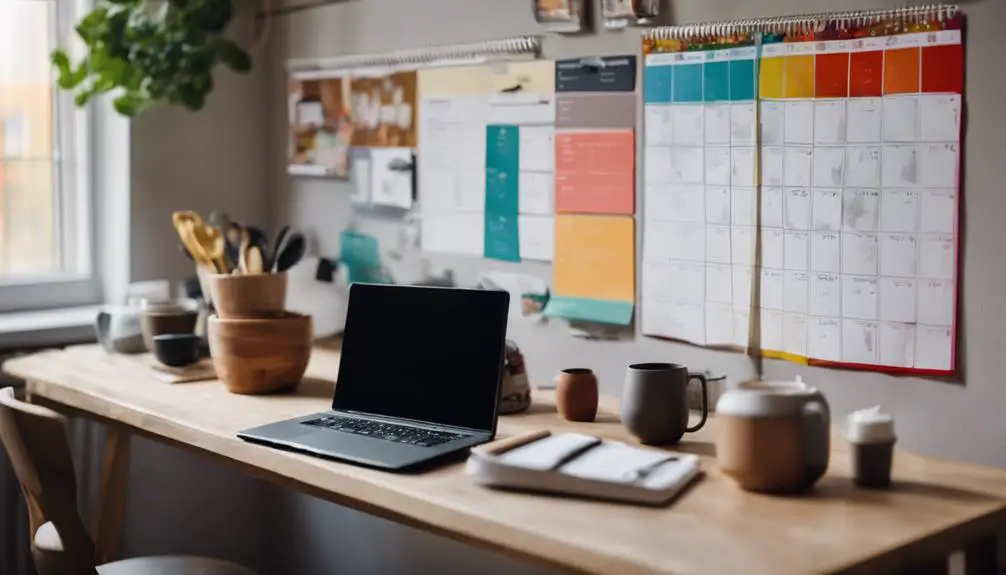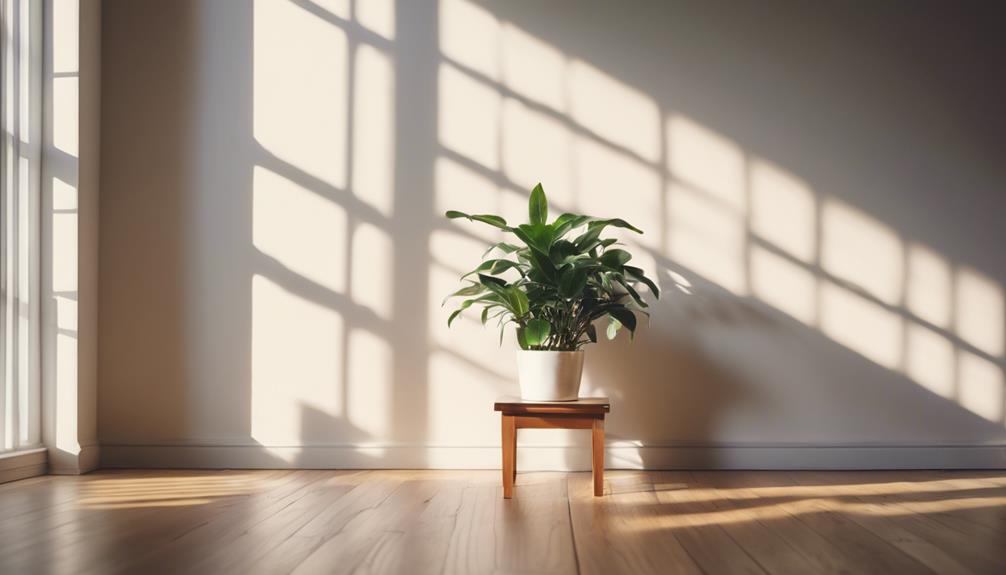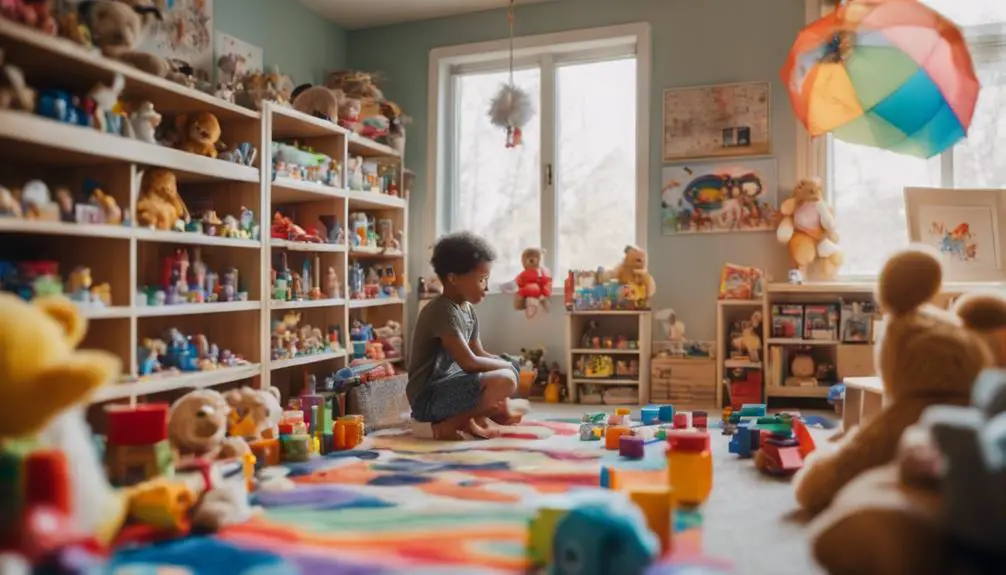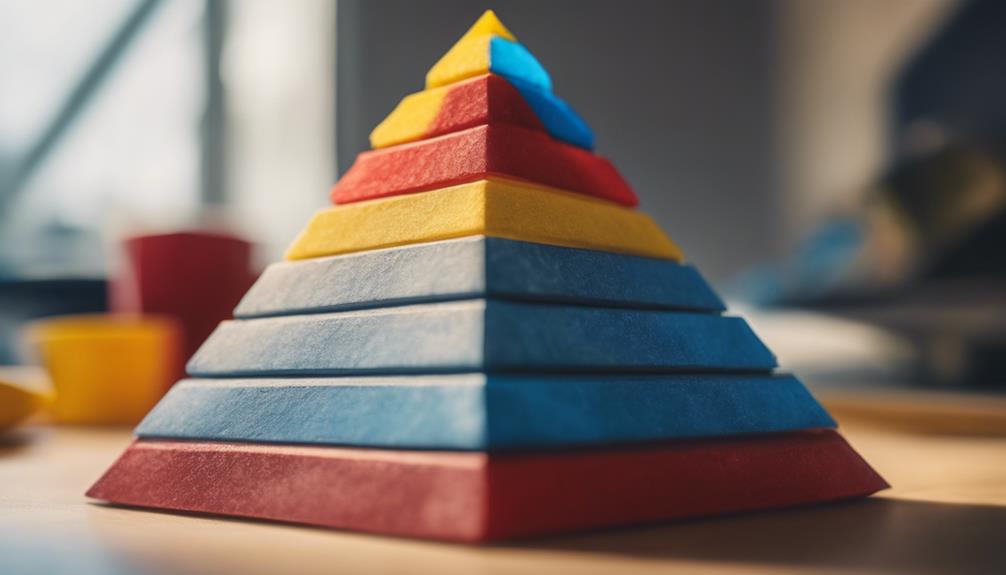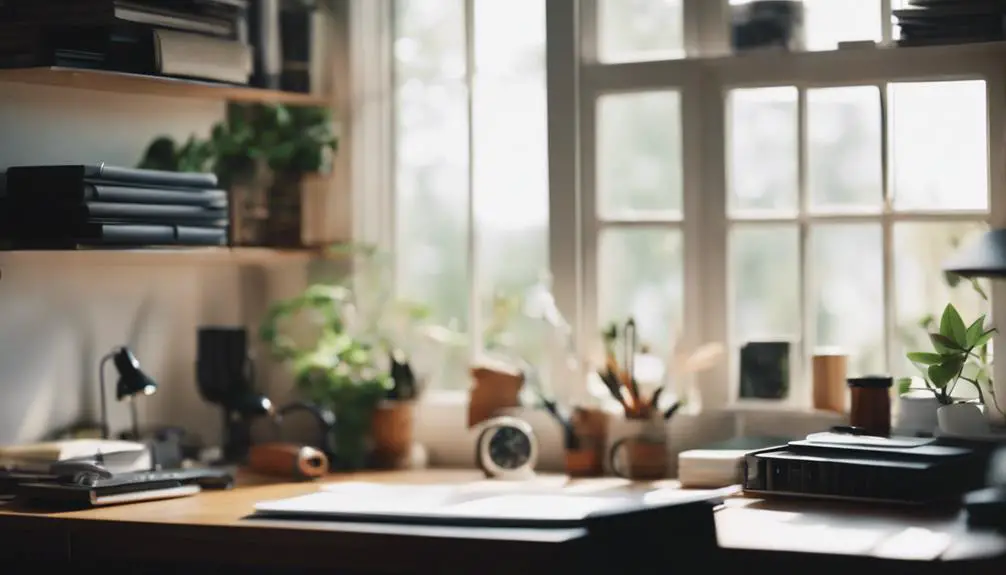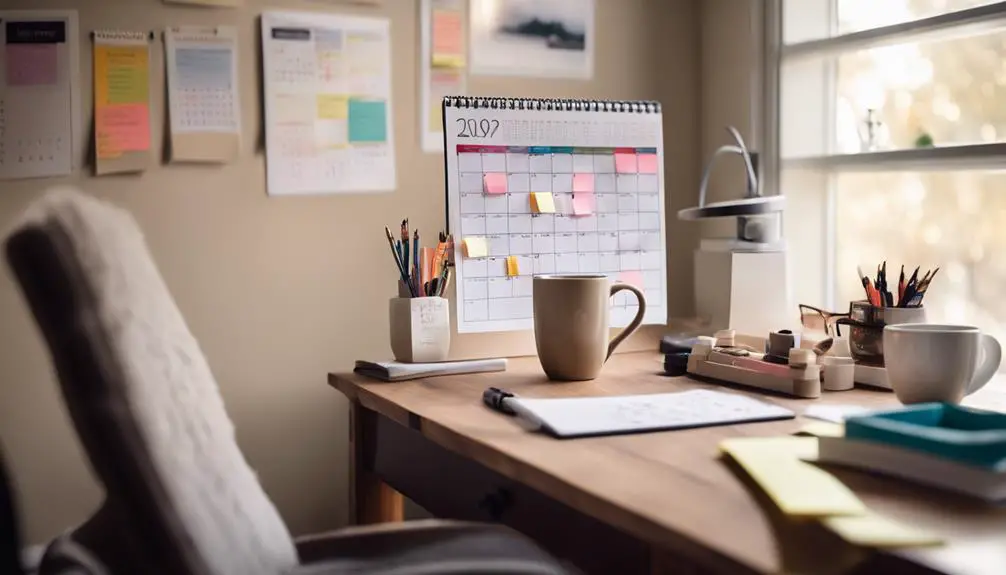Have you ever considered whether adopting a minimalist lifestyle could enhance your overall happiness? By removing unnecessary distractions and concentrating on what truly matters, you may experience not only a reduction in physical clutter but also a clearer path toward personal fulfillment. This transformation can lead to greater emotional clarity and a heightened ability to prioritize meaningful experiences over material goods.
However, the path to minimalism is often fraught with challenges. These obstacles can serve as valuable insights into your own values and what you truly prioritize in life.
Living minimally encourages you to evaluate your possessions and relationships critically. For example, you might choose to keep only items that bring you joy or serve a functional purpose, which can lead you to reflect on the things you genuinely need versus what you have accumulated out of habit.
This process can foster a sense of intentionality in your life, guiding you to make more conscious choices about how you spend your time and resources.
It’s also essential to recognize the emotional hurdles that may come with this lifestyle change. Letting go of items can stir feelings of nostalgia or guilt, especially if they hold sentimental value. Acknowledging these emotions is crucial, as they reveal your attachments and can help clarify your priorities.
Embracing minimalism might also mean reevaluating relationships that no longer serve you, which can be a difficult yet liberating process.
Ultimately, the minimalist journey is not merely about reducing physical belongings; it’s about cultivating a mindset focused on simplicity and purpose. As you navigate this path, you may discover new joys in experiences rather than possessions, leading to a more fulfilling and happier life.
Understanding Minimalism
Minimalism goes beyond simply owning fewer items; it represents a lifestyle choice that emphasizes experiences and meaningful relationships over material possessions. Embracing intentional living means you’re deliberately selecting what holds real significance in your life. This philosophy of essentialism encourages a focus on quality rather than quantity, ultimately leading to a more satisfying existence.
Digital minimalism is an important aspect of this journey, aiding in the process of decluttering your online presence and creating room for curated experiences. Practicing conscious consumption allows for mindful choices about what enters your life, ensuring that each item enhances your minimalist environment.
Aesthetic decluttering not only makes your space more visually appealing but also cultivates a sense of tranquility and clarity. Sustainable simplicity is crucial for sustaining a minimalist lifestyle. It prompts consideration of the environmental consequences of your decisions, advocating for a way of living that honors both personal freedom and the health of the planet.
Minimalist travel exemplifies this freedom, enabling you to explore the world armed with just the essentials, while enriching your life through unforgettable experiences. Ultimately, grasping the essence of minimalism empowers you to design a life that aligns with your core values, where each decision reflects your quest for authenticity and connection.
The Concept of Happiness
Happiness is a personal experience that varies from individual to individual, making it crucial to identify what it means to you. As you look into minimalism, you may observe its profound emotional effects on your life, which stand in stark contrast to the temporary pleasure derived from material possessions.
Taking time to contemplate what genuinely brings you joy can pave the way for a more fulfilling and vibrant life.
For instance, consider how decluttering your space may lead to a clearer mind and a sense of peace. Many find that reducing physical items in their environment allows for a greater appreciation of the things that truly matter, such as relationships and experiences.
Embracing this mindset can elevate your overall well-being, steering you towards a richer, more satisfying existence.
Defining Personal Happiness
At its essence, personal happiness is a unique and individual experience shaped by your values, beliefs, and circumstances. It’s crucial to acknowledge that the indicators of happiness differ from one person to another. Your personal values significantly influence what genuinely brings you joy. By enhancing your self-awareness, you can pinpoint where you find fulfillment and identify the factors that truly resonate with you.
Emotional resilience plays a crucial role as you navigate life’s challenges and triumphs. When you place importance on happiness, you foster a mindset that embraces intrinsic motivation, which leads to greater satisfaction in life. Recognizing what you prioritize in terms of happiness enables you to concentrate on what’s truly significant, rather than becoming entangled in societal pressures.
You may discover that happiness extends beyond transient pleasures; it often resides in deeper connections and experiences that nourish your spirit. Taking time to reflect on your subjective well-being can assist you in aligning your choices with your core values, ultimately guiding you toward a more fulfilling existence.
Embrace the liberty to define happiness according to your own standards, and allow your journey toward personal happiness to be steered by the elements that bring you genuine contentment.
Minimalism’s Emotional Impact
Embracing a minimalist lifestyle can significantly alter your experience of happiness. When you prioritize joyful simplicity, you open up space for emotional liberation. Letting go of excess possessions fosters emotional resilience, enabling you to recover from life’s challenges more readily. Releasing attachments to material items alleviates the weight they often impose, reducing stress in your daily life.
Making thoughtful decisions about what you own and consume encourages mindful habits. Aligning your choices with personal values deepens your sense of fulfillment. As you focus on what genuinely matters, you find relief from stress through the clarity that minimalism offers. The idea that “less is more” becomes evident as you savor each moment and recognize the elegance in simplicity.
This journey leads to enduring happiness through intentional living. The liberation that comes from discarding unnecessary items allows you to concentrate on what truly enhances your life.
Adopting minimalism can transform your emotional landscape, guiding you toward a more enriched and joyful existence.
Materialism vs. Fulfillment
In today’s fast-paced environment, the temptation of materialism frequently eclipses the quest for genuine fulfillment. Many individuals find themselves ensnared in the happiness paradox, where the belief that consumer satisfaction equates to happiness prevails.
However, as you pursue material wealth, you may experience a growing emotional distance from the things that truly matter in life.
Consider redefining your viewpoint and embracing a way of life that values quality over quantity and experiences over possessions. Here are some strategies to help you navigate this shift:
- Reflect on your core values: Take the time to identify what genuinely brings you joy and satisfaction in life.
- Reassess societal norms: Examine whether material security is as essential as it’s often portrayed.
- Prioritize experiences: Focus on creating memorable moments that contribute to your overall well-being and happiness.
- Simplify your choices: Concentrate on the aspects of life that provide authentic joy and fulfillment.
As you embark on this journey, remember that true fulfillment is often found in the relationships you nurture and the experiences you treasure, rather than in the material possessions you accumulate.
Redefining success through the lens of your values can lead to a more meaningful life, free from the limitations imposed by materialism. Embrace this transformation, and you may discover the happiness you have been longing for all along.
Minimalism and Mental Clarity
Reducing clutter can significantly enhance your mental clarity, enabling you to concentrate on what truly matters. Embracing minimalism allows you to establish an environment that encourages cognitive simplicity, liberating your mind from distractions. This newfound clarity enhances your capacity to make decisions without succumbing to decision fatigue, which can often lead to stress and confusion.
Adopting intentional living means prioritizing what’s essential, which in turn fosters a reduction in stress and builds emotional resilience. With fewer possessions to manage, you gain the creative freedom to explore your passions and interests, leading to a profound sense of fulfillment.
Practicing mindfulness becomes more accessible as you become more aware of the present moment, unencumbered by both physical and mental clutter. As you nurture this balanced lifestyle, you’ll likely observe an improvement in your focus, allowing for deeper engagement with your work and relationships.
Minimalism transcends mere possession reduction; it serves as a route to mental clarity and a more joyful existence. Simplifying your surroundings empowers you to lead a life filled with intention and purpose, ultimately making your day-to-day experiences richer and more meaningful.
Decluttering for a Peaceful Mind
When you begin the process of decluttering, you’ll likely experience a significant sense of mental lightness. Simplifying your environment not only encourages mindfulness but also fosters a sense of well-being. Choosing to embrace minimalism can lead to increased joy and mental clarity in your daily life.
For instance, consider the impact of removing unnecessary items from your living space. When you clear out belongings that no longer serve a purpose or bring you happiness, you create a more serene atmosphere. This newfound simplicity can help reduce stress and anxiety, allowing you to focus on what truly matters.
Moreover, adopting a minimalist approach can involve evaluating your possessions thoughtfully. Instead of holding onto items out of obligation, take the time to assess their value in your life. This practice not only aids in creating a more organized space but also promotes a deeper appreciation for the things you choose to keep.
Benefits of Decluttering
Many individuals discover that clearing out their space brings a deep sense of calm and mental clarity. Embracing the benefits of decluttering means more than just tidying up; it involves creating a serene environment that enhances your emotional well-being. An organized space alleviates stress and liberates your mind from the clutter of unnecessary items.
Consider the following advantages of decluttering:
- Liberation from excess: Discarding items that no longer serve a purpose creates mental space, allowing for greater focus and creativity.
- Mindful decisions: With fewer distractions, you can concentrate on what’s truly significant in your life.
- Streamlined living: Adopting a minimalist lifestyle encourages you to value experiences over material possessions, leading to more fulfilling moments.
- Happiness in simplicity: Embracing minimalism can lead to discovering joy in the simple aspects of life, promoting a more contented existence.
As you embark on your decluttering journey, you’re intentionally choosing to foster a tranquil environment. This choice paves the way for a lifestyle that prioritizes what truly enriches your life.
For example, consider donating clothes that no longer fit or parting with kitchen gadgets you never use. These actions not only clear physical space but also enhance your emotional clarity and overall well-being.
Embrace the transformative power of decluttering and witness the positive changes it brings to your mindset and life.
Mindfulness Through Simplicity
Accepting simplicity can significantly enhance mindfulness in daily life. When you declutter your environment, you aren’t merely removing physical items; you’re also clearing mental space, leading to improved clarity and tranquility. Letting go of distractions allows you to engage in intentional living, concentrating on what genuinely matters to you, which can elevate your overall happiness.
When you make mindful choices about what to consume, valuing quality over quantity becomes instinctive. Instead of amassing possessions, you begin selecting items that align with your personal values. This transformation fosters a sense of liberation—liberation from the grips of consumerism and the disorder it generates. As a result, you start to savor each moment more completely, deriving joy from experiences rather than material goods.
Embracing a minimalist lifestyle can create a noticeable lightness in your spirit. Your surroundings reflect your thoughts, and a simplified space promotes a calmer mind. Each cleared area encourages mindfulness, making it easier to breathe and think clearly. In this manner, simplicity serves as a route to a deeper connection with yourself and your surroundings, enriching your life in unexpected ways.
For practical steps, consider adopting a regular decluttering routine. Start by choosing one area of your home each week, such as your closet or kitchen, and evaluate which items you truly use and cherish. Donate or recycle anything that no longer serves a purpose.
Additionally, when shopping, opt for high-quality, sustainable products that resonate with your values. For instance, instead of purchasing multiple fast-fashion items, invest in a single, well-made piece of clothing that will last longer. These actions not only simplify your life but also create a more mindful existence.
Space for Well-being
Regularly clearing out your space can significantly improve your mental well-being. A clutter-free environment enhances tranquility and fosters a sense of peace.
Imagine entering a calm area where everything serves a purpose and contributes to your overall serenity. This simplicity in aesthetics not only provides emotional relief but also helps you concentrate on what truly matters in your life.
The benefits of decluttering extend beyond just a tidy appearance.
- Holistic wellness: An organized space can lead to improved mental health and lower stress levels. When your surroundings are neat, it becomes easier to manage daily challenges.
- Mindful consumption: Clearing out unnecessary items increases your awareness of what you introduce into your life. This practice encourages a more intentional lifestyle, making you think carefully before acquiring new possessions.
- Peaceful surroundings: An uncluttered environment invites relaxation and nurtures creativity. A serene space can inspire new ideas and provide a calming backdrop for daily activities.
- Improved clarity: A decluttered area often results in clearer thinking and better focus. When distractions are minimized, you can think more clearly and make decisions with greater confidence.
Creating a space dedicated to well-being is essential for a balanced life.
Consider engaging in regular decluttering sessions to maintain a healthy mental state and foster a more intentional existence.
Emotional Benefits of Minimalism
Adopting a minimalist lifestyle often results in significant emotional advantages that can profoundly enhance your day-to-day experiences. By simplifying your environment, you achieve emotional clarity, enabling you to concentrate on what truly matters in your life. This approach encourages a joyful release from material possessions, liberating you from the burdens of excess and the stress that frequently comes with it.
Engaging in a gratitude practice shifts your perspective towards positivity. You start to recognize and appreciate the small pleasures that bring happiness. Living intentionally not only reduces stress but also opens up opportunities for deeper connections with others. Relationships thrive when you focus on quality rather than quantity.
As you embark on your journey of self-discovery, your true passions and desires become clearer. With the removal of clutter, your creativity can flourish, as your mind has the freedom to explore new ideas and viewpoints.
Embracing minimalism also cultivates resilience, equipping you to handle life’s challenges with a more optimistic outlook.
Ultimately, adopting minimalism can lead to emotional liberation. You learn to navigate your life with purpose, crafting a fulfilling existence anchored in what you genuinely value. This illustrates how minimalism can contribute to a happier, more liberated life.
Minimalism and Financial Freedom
Many individuals discover that embracing a minimalist lifestyle can lead to considerable financial freedom. Focusing on what truly matters allows you to develop smart financial habits that can guide you toward independence. Minimalism promotes intentional spending, enabling you to prioritize experiences rather than material possessions. This shift in mindset encourages lifestyle choices that support long-term wealth accumulation.
The benefits of adopting this approach include:
- Improved budgeting strategies that simplify expense tracking, making it easier to manage your finances.
- Enhanced saving habits that contribute to a more robust emergency fund, providing peace of mind.
- An investment-focused mindset that channels your savings into opportunities for passive income generation.
- Effective debt reduction, alleviating financial strain and stress.
Embracing frugal living equips you with valuable tools to transform your wealth mindset. You’ll start to find joy in simplicity and cultivate an appreciation for what you already possess.
Reducing clutter allows you to concentrate on building a future that resonates with your core values. Implementing these principles fosters a life rich in freedom and purpose.
Ultimately, minimalism transcends merely decluttering physical spaces; it liberates your mind and finances, paving the way for a more fulfilling and empowered existence.
Time Management and Simplicity
Time management becomes significantly simpler when you embrace a minimalist mindset. Adopting simplicity strategies enhances your ability to allocate time effectively, ensuring that each moment fulfills a specific purpose. As you recognize what’s genuinely important, prioritizing tasks transforms into an instinctive process, enabling you to concentrate on activities that align with your objectives.
Establishing effective routines can significantly enhance your productivity. Implementing intentional scheduling allows you to maintain a balanced energy level throughout the day, which helps prevent burnout and fosters a sense of freedom.
Utilizing focus techniques to minimize distractions can lead to a more organized workspace and a clearer mind. A tidy environment encourages clarity, allowing you to engage fully with your selected tasks.
Setting goals becomes less daunting when you decompose objectives into manageable steps, making your aspirations feel achievable. Embracing these minimalist practices cultivates a lifestyle that emphasizes what truly matters, freeing up time for the activities you love.
This newfound simplicity not only boosts your productivity but also enhances your overall happiness and fulfillment. Embrace minimalism, and observe how your time management evolves into a powerful tool for achieving freedom.
Building Meaningful Relationships
A minimalist lifestyle not only streamlines how you manage your time but also serves as a strong foundation for cultivating meaningful relationships. When you choose to declutter your life, you create space for deeper social connections, allowing you to concentrate on what’s truly important.
Prioritizing quality over quantity enables you to build bonds that offer emotional support and foster trust.
Here are several ways minimalism enhances your relationships:
- Shared experiences: With fewer distractions, you can devote more time to creating unforgettable memories with family and friends. For instance, a weekend camping trip can strengthen bonds and allow for shared laughter around a campfire.
- Community engagement: Simplifying your life gives you the opportunity to dedicate time to your community. Volunteering at a local shelter or participating in neighborhood events can strengthen your social network and foster a sense of belonging.
- Friendship depth: Focusing on a select few friendships rather than a large number can lead to stronger emotional ties. Investing time in a couple of close friends allows for deeper conversations and shared experiences, enhancing your connection.
- Empathy development: Engaging in genuine interactions improves your communication skills and fosters a better understanding of others. Listening actively during conversations and showing genuine interest in others’ lives helps cultivate empathy.
Embracing minimalism can lead to improved relationship quality. You’ll experience stronger family bonds and deeper friendships while enjoying the freedom that intentional living provides.
Nurturing these connections will result in a richer, more fulfilling life characterized by trust and support. This journey not only benefits you but also positively impacts those around you, allowing your relationships to thrive.
Stress Reduction Through Minimalism
Adopting a minimalist lifestyle can significantly alleviate stress levels by fostering a more organized and tranquil environment. As you streamline your surroundings, the advantages of simplicity begin to manifest. With reduced clutter, you will likely experience decreased feelings of anxiety related to disorganization, which can enhance your awareness of stress and improve your emotional clarity.
Here’s a detailed look at how minimalism can reshape your daily habits:
| Lifestyle Changes | Advantages |
|---|---|
| Mindful Consumption | Lowers mental strain |
| Intentional Living | Enhances emotional understanding |
| Routine Simplification | Creates a sense of freedom |
Mindful consumption involves making deliberate choices about what you bring into your life, whether it’s physical items or experiences. This practice reduces mental clutter, allowing you to focus on what truly matters. For example, instead of accumulating numerous items, consider investing in high-quality, multifunctional products that serve a purpose and bring joy.
Intentional living encourages you to define your values and align your actions with them. This alignment fosters emotional clarity, helping you to make decisions that resonate with your true self. A practical step is to regularly assess your commitments and eliminate those that do not support your priorities.
Routine simplification aims to streamline your daily activities, making space for what you love. For instance, consider adopting a morning routine that consists of just a few essential activities, such as meditation, stretching, and a healthy breakfast. This practice can help you start your day with a clear mind and a sense of liberation.
Incorporating minimalism into your life not only creates a less stressful environment but also promotes a more fulfilling existence.
Minimalism in Consumer Culture
Many individuals link consumer culture with excess and the accumulation of unnecessary items. In contrast, minimalism presents a refreshing approach that promotes thoughtful consumption. Embracing minimalist trends enables you to escape the chaos of clutter and reshape your buying habits.
This path toward consumer mindfulness emphasizes the importance of making intentional purchases that genuinely enhance your life, steering clear of emotional buying influenced by advertising.
Here are some key principles of minimalism in consumer culture:
- Consumer Awareness: Recognize the effects of your purchasing decisions on your life and the world around you.
- Sustainable Consumption: Select products that are environmentally friendly, contributing to a healthier planet.
- Ethical Shopping: Support brands that commit to fair labor practices, ensuring that workers are treated with dignity and respect.
- Digital Minimalism: Reduce online distractions to concentrate on what truly matters in your life.
For instance, when choosing clothing, consider brands like Patagonia or Everlane, known for their commitment to sustainability and ethical practices.
Similarly, when looking for household items, seek out companies that prioritize eco-friendly materials and manufacturing processes.
Environmental Impact of Minimalism
Minimalism significantly diminishes your environmental impact by promoting responsible consumption and reducing waste. Embracing a minimalist lifestyle means prioritizing sustainable choices and being mindful of what you acquire. With fewer possessions, you end up purchasing less, which leads to a decrease in waste and a reduction in your carbon footprint.
Focusing on quality rather than quantity plays a crucial role in conserving resources. This approach encourages you to select products that are ethically sourced and built to last. Such choices not only reflect a commitment to ethical living but also enhance your awareness of environmental issues. As you become more attuned to the consequences of your lifestyle on the planet, you’re empowered to make decisions that resonate with your values.
Reducing consumption contributes significantly to waste reduction, a vital factor in addressing environmental challenges today. Each intentional choice reinforces the idea that individual actions matter. Opting for a minimalist approach means simplifying your life while also engaging in a movement dedicated to prioritizing the planet’s health.
This transformation frees you from the burdens of material excess and aligns your lifestyle with sustainability principles, leading to a more meaningful existence that honors the Earth.
For instance, consider investing in high-quality, reusable items such as stainless steel water bottles or bamboo utensils instead of single-use plastics. These choices not only cut down on waste but also support sustainable brands that prioritize eco-friendly practices.
The Role of Intentionality
Intentionality lies at the core of a minimalist lifestyle, shaping your decisions and actions for greater satisfaction. Embracing intentional living means removing distractions and honing in on what genuinely matters to you. This approach empowers you to make deliberate choices that reflect your values, resulting in a more profound sense of freedom and happiness.
Here are several ways intentionality can enhance your life:
- Prioritize what matters: Determine your fundamental values and allow them to guide your decisions, ensuring that your choices resonate with what you hold dear.
- Reduce distractions: Cut out the noise surrounding you to create an environment that fosters clarity and focus, enabling you to concentrate on your goals.
- Cultivate mindfulness: Engage fully in your daily activities, taking the time to appreciate each moment, which can lead to a richer experience of life.
- Set clear goals: Clearly define what success means to you and pursue it with determination, allowing your intentions to direct your efforts.
Living with intention means actively shaping your life rather than merely responding to circumstances. This commitment to making purposeful choices allows you to break free from societal pressures, enabling you to construct a life that aligns with your authentic self.
Ultimately, intentionality serves as the driving force behind your minimalist journey, leading you to a more meaningful and joyful existence.
Minimalism as a Lifestyle Choice
Minimalism isn’t merely a passing trend; it represents a deliberate choice that can profoundly alter your way of living. Simplifying your environment allows for enhanced mindfulness, enabling you to reap the rewards of a less cluttered existence. This approach to life emphasizes the significance of intentional living, which can lead to greater happiness and fulfillment.
Understanding minimalism today involves recognizing its core principles and how they can benefit you. For instance, consider the impact of reducing excess items in your home. When you eliminate unnecessary belongings, you create a space that fosters clarity and peace. This environment not only enhances your focus but also encourages a sense of calm, leading to improved mental well-being.
Another important aspect of minimalism is the emphasis on experiences over possessions. For example, instead of spending money on material goods, you might invest in activities that enrich your life, such as travel, workshops, or courses that align with your passions. This shift in priorities can cultivate deeper connections with yourself and others, enhancing your overall quality of life.
Furthermore, minimalism encourages you to evaluate your commitments and relationships, leading to a more fulfilling social life. By prioritizing meaningful interactions over superficial ones, you can create a support system that truly nurtures you. This intentional approach to both your physical and social environments can lead to a more purposeful and joyful existence.
Defining Minimalism Today
As you navigate the intricacies of contemporary existence, adopting a minimalist lifestyle can bring clarity and purpose to your life. Minimalism transcends mere decluttering; it embodies a comprehensive approach to living with intention. Embracing a minimalist mindset allows you to concentrate on what genuinely matters.
Consider these fundamental aspects of minimalism:
- Minimalist aesthetics: Simplifying your environment can cultivate a peaceful atmosphere that enhances your overall well-being. For instance, opting for neutral colors and fewer decorative items can create a calming space.
- Intentional living: Making deliberate choices regarding possessions and time can lead to deeper satisfaction. For example, curating your wardrobe to include only versatile, high-quality pieces can streamline your daily routine and boost your confidence.
- Digital minimalism: Reducing the clutter in your online life helps minimize distractions and encourages more meaningful interactions. You might consider limiting social media usage or unsubscribing from unnecessary emails to reclaim your focus.
- Minimalist travel: Embracing simplicity while traveling enables you to immerse yourself in experiences rather than material possessions. Packing light, for instance, allows for greater flexibility and the opportunity to truly enjoy your surroundings.
Incorporating these principles into your daily life can lead to greater fulfillment and a renewed sense of purpose.
Benefits of Simplification
Simplifying your life reveals numerous benefits that go beyond just a tidy space. Embracing minimalism enhances your ability to focus, allowing you to concentrate on what truly matters. This clarity fosters emotional understanding and strengthens your connections with yourself and others.
As you remove unnecessary clutter, you naturally experience reduced stress. A less chaotic environment enables you to live with intention, making choices that reflect your values. This focused approach allows for creative exploration, encouraging you to pursue new interests and ideas without feeling burdened.
Moreover, minimalism encourages sustainable living. By consuming less, you contribute to a healthier planet while prioritizing what nourishes your body and mind. This lifestyle change often leads to improved overall health.
As you adopt a minimalist perspective, you’ll discover a deeper appreciation for life’s simple pleasures, which enhances your overall satisfaction. The path to simplification fosters personal growth, empowering you to live authentically and embrace every moment fully.
Starting today can set you on this transformative journey toward a more meaningful life.
Mindfulness and Minimalism
Integrating mindfulness with minimalism enhances your everyday experiences, enabling you to fully appreciate each moment with purpose. Practicing intentional living allows you to create space for what truly matters, resulting in increased happiness and fulfillment.
Mindful consumption serves as your guiding principle, empowering you to make choices that align with your values and desires.
Here are some key aspects of merging mindfulness with minimalism:
- Prioritize quality: Opt for fewer items that bring joy and fulfill a specific need. For instance, instead of accumulating numerous kitchen gadgets, invest in a high-quality chef’s knife that enhances your cooking experience.
- Develop awareness: Observe your thoughts and emotions while decluttering. This process can reveal patterns in your attachment to possessions and help you make more informed decisions about what to keep and what to let go.
- Embrace gratitude: Focus on appreciating what you currently own rather than longing for more. Keeping a gratitude journal can help you recognize the value in your belongings and the experiences they bring.
- Establish boundaries: Limit distractions that don’t align with your minimalist objectives. For example, consider unsubscribing from emails or social media accounts that promote consumerism, allowing you to maintain a clearer mindset.
Real-Life Minimalist Examples
Many individuals have embraced a minimalist lifestyle, demonstrating its advantages in everyday situations. Real-life accounts of people adopting minimalism can provide motivation. For example, a family made the decision to downsize their home, letting go of unnecessary possessions. This choice resulted in a significant transformation in their way of living.
They discovered the joy of prioritizing shared experiences over material belongings, leading to the creation of cherished memories that strengthened their family bond.
On your own minimalist journey, you can draw inspiration from personal stories shared by others. One individual shared their experience of decluttering their workspace, which resulted in enhanced focus and creativity.
Another person discussed the liberation that came from simplifying their wardrobe to only include essential items. While you may encounter challenges, such as parting with sentimental belongings, the rewards often far surpass these difficulties.
Community engagement is also crucial in this journey. Many people find encouragement in groups centered around minimalism, where they exchange inspiring stories and support one another through their changes.
These connections can amplify the sense of freedom that minimalism seeks to achieve. Ultimately, adopting a minimalist lifestyle can lead to a more intentional way of living, enabling you to focus on what truly matters and nurture happiness throughout your journey.
Challenges of Minimalist Living
Embracing a minimalist lifestyle can be quite challenging, as emotional ties to belongings often hinder the process. The influence of societal norms and expectations can add to the complexity of this journey, making it difficult to remain committed to your minimalist goals.
Furthermore, the practical aspects of reducing the number of possessions can introduce a variety of obstacles that necessitate thoughtful planning.
For instance, consider the emotional weight of family heirlooms or gifts from friends. These items can carry significant sentimental value, making it hard to let them go, even if they no longer serve a purpose in your life.
Moreover, when friends or family members have different views on material possessions, their opinions can create additional pressure, leading to confusion about your own choices.
On the practical side, deciding what to keep and what to part with requires careful assessment. You may need to establish criteria for your belongings, such as utility, joy, or necessity.
An effective approach might involve categorizing items into groups, such as ‘keep,’ ‘donate,’ or ‘discard.’ For example, if you come across clothing that no longer fits or you haven’t worn in over a year, consider donating those items to a local charity. This not only helps declutter your space but also supports those in need.
Emotional Attachment to Possessions
Letting go of belongings can seem daunting, particularly when deep emotional ties are involved. You may experience a sense of nostalgia, where the memories associated with certain items make it challenging to part with them.
However, consider the possibility that releasing these attachments can lead to emotional liberation and a more fulfilling life.
To assist in this process, start by assessing the significance of your possessions. Determine whether they serve a functional purpose or simply add to your burden.
Gradually letting go of items that no longer reflect who you’re can help you practice detachment. Strive for a balance in sentimentality; keep only those items that truly honor your memories while discarding those that don’t contribute meaningfully to your life.
Shift your perspective on your belongings by emphasizing the experiences and moments they represent instead of the items themselves.
Accepting a change in your identity involves rethinking the role possessions play in defining who you are. Embrace the idea that meaningful memories exist beyond physical objects.
These cherished connections thrive within your heart and mind, paving the way for a richer, more liberated way of living.
Social Pressure and Expectations
Navigating a minimalist lifestyle often brings you face-to-face with social pressures and expectations. As you pursue a simpler way of living, you may find yourself balancing the influence of friends and societal norms that can complicate your quest for freedom. Although minimalism is designed to declutter your life, cultural demands can lead to a tendency to conform, making it challenging to fully embrace your choices.
External validation plays a significant role in shaping your decisions. Consider the following influences and how they impact your minimalist journey:
| Influences | Effects on Minimalism | Strategies to Overcome |
|---|---|---|
| Peer Influence | Feeling judged by friends | Clearly communicate your values |
| Societal Norms | Pressure regarding image and status | Concentrate on personal fulfillment |
| Family Expectations | Guilt for deviating from norms | Establish boundaries and share your goals |
| Trend Following | The urge to accumulate possessions | Remind yourself of your core mission |
These aspects can weigh heavily on your journey. You might feel the pull of community values or familial expectations that clash with your minimalist goals. Escaping these pressures is crucial for finding true happiness. Embrace your path, tune out distractions, and focus on what genuinely matters to you.
For instance, if you feel judged by friends for not participating in consumerist activities, openly discussing your values can help them understand your perspective. If societal norms make you feel the need to keep up with trends, remind yourself of the deeper satisfaction that comes from living with less. Setting boundaries with family can mitigate feelings of guilt and allow you to pursue your aspirations without compromise. Keeping a journal of your minimalist mission can serve as a powerful reminder of why you chose this lifestyle in the first place.
Ultimately, prioritizing your well-being and values is essential for a fulfilling minimalist life.
Practicality of Downsizing Efforts
Downsizing can present a significant challenge, especially when you confront the emotional and practical obstacles of parting with belongings that have accumulated over the years.
However, embracing the advantages of downsizing can lead to a more liberated life. To effectively manage this transition, it’s essential to implement practical strategies that resonate with your personal motivations.
Here are some strategies to guide you through the downsizing process:
- Evaluate your emotional preparedness: Recognize and acknowledge the emotions associated with letting go. Focus on identifying what’s genuinely important to you, which can ease the process.
- Examine financial consequences: Assess how downsizing can help lower your expenses. This can lead to improved financial planning and a more secure future.
- Adapt your lifestyle: Embrace new daily routines that facilitate space optimization and promote simplicity. For example, consider adopting a minimalistic approach in your living space, which can enhance your overall well-being.
- Connect with community resources: Join groups or forums with individuals on a similar downsizing journey. Sharing experiences and encouragement can make the process feel less daunting.
Minimalism and Personal Growth
Embracing minimalism can lead to profound personal growth. When you remove unnecessary clutter from your life, you create an opportunity for self-discovery and clarity. This process allows you to identify what’s genuinely important to you, paving the way for a more intentional way of living.
By prioritizing mindful consumption, you can focus on quality rather than quantity, enabling you to make choices that truly align with your values. As you shed material distractions, you become open to new experiences and diverse viewpoints. This change encourages you to explore your passions, nurture relationships, and invest time in personal development.
You’ll find that each choice you make is more intentional, helping you to synchronize your actions with your fundamental beliefs. Minimalism invites you to examine your habits and mindset, leading you toward a truer version of yourself. You’ll start to appreciate the small, simple pleasures in life, discovering a sense of freedom in having less.
This lifestyle choice allows you to detach from societal norms and expectations, guiding you to pursue a life that feels more fulfilling and authentic. Ultimately, minimalism goes beyond merely decluttering your living space; it serves as a powerful catalyst for meaningful personal growth.
For instance, consider starting with a small area in your home, such as a closet or desk, and removing items that no longer serve a purpose in your life. This simple act can kickstart your journey, leading to greater clarity and a deeper understanding of what truly enriches your life.
Finding Balance and Fulfillment
As you embrace minimalism and assess your core values, you may discover a desire for balance and fulfillment across different areas of your life. This path of self-discovery often leads to intentional living and sustainable choices that align with your beliefs.
Prioritizing what truly matters allows you to create a lifestyle that celebrates joy in simplicity.
To assist you in achieving this sense of balance and fulfillment, consider the following strategies:
- Establish personal boundaries: Safeguard your time and energy by declining commitments that don’t contribute positively to your life. For example, if social gatherings drain you, opt for smaller, more meaningful interactions instead.
- Practice holistic wellness: Integrate elements of physical, mental, and emotional health into your daily routine. This can include activities like yoga for physical fitness, journaling for mental clarity, and mindfulness meditation for emotional stability.
- Engage in fulfillment techniques: Participate in activities that uplift your spirit and bring you happiness. This could involve hiking in nature, painting, or volunteering for a cause you care about.
- Implement balance strategies: Design a schedule that accommodates both productivity and relaxation. For instance, allocate specific time blocks for work tasks while also ensuring you include breaks for leisure activities.
Remember, the journey is about progress rather than perfection.
Adopting a minimalist lifestyle allows you to focus on what’s genuinely important, leading to a life rich in balance and fulfillment. Embrace the liberation that comes with intentional living, and eliminate distractions that steer you away from your true purpose.
Conclusion
Embracing a minimalist lifestyle isn’t merely about letting go of unnecessary items; it’s about creating a clearer pathway to joy and fulfillment. Just as a garden thrives when weeds are removed, your life can flourish when distractions and clutter are eliminated. Focusing on what genuinely matters—such as meaningful experiences and nurturing relationships—opens up space for happiness to flourish. Simplifying your life allows you to prioritize quality over quantity, ultimately cultivating a life filled with purpose and connection.
For example, consider the impact of decluttering your living space. When your environment is free of excess items, it becomes easier to focus on activities that bring you joy, like spending time with loved ones or pursuing hobbies that spark your interest. Investing in multifunctional furniture can also enhance your minimalist approach. Items such as a storage ottoman or a collapsible dining table not only save space but also encourage a more organized and peaceful atmosphere.
In adopting this lifestyle, remember that fulfillment comes from meaningful interactions and experiences rather than material possessions. By consciously choosing to surround yourself with only what adds value to your life, you can foster a deeper sense of happiness and connection.

